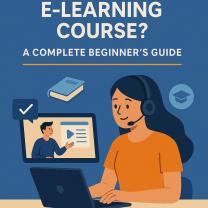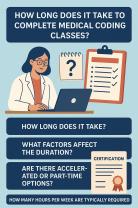What is basic driver improvement course?
A Basic Driver Improvement Course (BDIC), also known as a Defensive Driving Course or Traffic School, is a program designed to educate drivers about safe driving practices and to improve their skills. The primary goal is to promote safe driving behavior and reduce traffic violations and accidents. Driver improvement courses are often taken voluntarily by drivers to earn insurance discounts, remove points from their driving records, or meet court-ordered requirements.
Here are some key aspects of a Basic Driver Improvement Course:
Content:
- The course typically covers a range of topics related to safe driving, including traffic laws, defensive driving techniques, hazard awareness, and the consequences of impaired or distracted driving.
Eligibility:
- Drivers may voluntarily enroll in a BDIC to improve their driving skills. In some cases, drivers may be required by a court or the Department of Motor Vehicles (DMV) to complete the course as a condition for ticket dismissal or license reinstatement.
Insurance Discounts:
- Completing a BDIC may make drivers eligible for insurance premium discounts. Many insurance providers offer reduced rates for drivers who voluntarily take a defensive driving course.
Point Reduction:
- In some jurisdictions, completing a driver improvement course can result in the removal of points from a driver's record. This can be beneficial for those who have accumulated points due to traffic violations.
Court-Mandated Courses:
- Some drivers are required by the court to take a driver improvement course as a result of a traffic violation. Successfully completing the course may be a condition for ticket dismissal or a reduction in fines.
Online and In-Person Options:
- Driver improvement courses are often available both online and in traditional classroom settings. Online courses provide flexibility, allowing participants to complete the requirements at their own pace.
Duration:
- The duration of a Basic Driver Improvement Course varies depending on the jurisdiction and the specific program. Courses typically range from a few hours to multiple sessions.
Certificate of Completion:
- Upon successful completion of the course, participants receive a certificate. This certificate may need to be submitted to the court, DMV, or insurance provider, depending on the reason for taking the course.
Course Providers:
- BDICs are offered by various providers, including driving schools, online education platforms, and organizations approved by state authorities. It's important to choose a course provider that is recognized and approved by the relevant jurisdiction.
Curriculum Approval:
- The curriculum of a Basic Driver Improvement Course is often approved by the state or local DMV to ensure that it meets the necessary educational standards.
Recertification:
- In some cases, drivers may be required to retake a BDIC after a certain period to maintain insurance discounts or other benefits.
Before enrolling in a Basic Driver Improvement Course, individuals should check with their local DMV or court to understand specific requirements, eligibility criteria, and approved course providers in their jurisdiction.
Demystifying the Basic Driver Improvement Course: Your Path to Safe Driving
Getting a traffic ticket can be unsettling, but a Basic Driver Improvement Course (BDIC) can offer a solution. Let's delve into its essential aspects, impact on driving records, accessibility, benefits, and regional variations:
1. Unpacking the BDIC Content:
A BDIC typically covers these topics:
- Traffic laws and regulations: Refresher on essential driving rules and updates.
- Defensive driving techniques: Strategies for avoiding accidents and mitigating risks.
- Road safety awareness: Understanding factors contributing to road accidents and promoting safe driving habits.
- Driver error analysis: Self-reflection on personal driving patterns and potential areas for improvement.
- Vehicle maintenance and inspections: Techniques for keeping your car in good condition and minimizing mechanical failures.
2. Impact on Driving Records:
Completing a BDIC can offer these benefits for your driving record:
- Point reduction: In some states, completing a BDIC can remove points from your license upon successful completion, potentially lowering insurance costs.
- Ticket dismissal: In certain cases, completing a BDIC can lead to dismissal of the original traffic ticket, depending on state regulations and the specific offense.
- Record maintenance: BDIC completion may be added to your driving record, demonstrating a commitment to safe driving practices.
3. Finding Your Course Haven:
BDICs are readily available through various channels:
- Courthouses: Many courts offer in-person BDICs led by certified instructors.
- Online providers: Numerous online schools provide convenient, self-paced BDIC options.
- Driving schools: Local driving schools often offer BDICs alongside their regular driving instruction programs.
4. Reaping the Rewards of Improvement:
Beyond potential record benefits, BDICs offer several advantages:
- Enhanced knowledge and skills: Gain a deeper understanding of traffic laws, defensive driving techniques, and safe driving practices.
- Reduced accident risk: Improved awareness and skills may translate to safer driving patterns and fewer accidents.
- Insurance cost savings: Some insurance companies offer discounts for drivers who complete BDICs.
- Reduced stress and anxiety: Increased confidence and knowledge about safe driving can lead to less driving anxiety.
- Positive driving record: Demonstrating proactive efforts to improve driving can be appreciated by insurance companies and potential employers.
5. Navigating Regional Variations:
BDIC content and regulations vary across states:
- Course length and format: Course duration and availability of online or in-person options might differ.
- Eligible offenses: Specific traffic violations eligible for BDIC completion may vary depending on the state.
- Point reduction and ticket dismissal: The extent of point reduction or ticket dismissal potential could differ based on state regulations.
Remember: Research your state's specific BDIC regulations and choose a certified course provider approved by the relevant authorities. By investing in a BDIC, you can potentially improve your driving skills, enhance your driving record, and contribute to safer roads for everyone.
I hope this comprehensive guide clarifies the world of BDICs and empowers you to make informed decisions for your driving journey!













